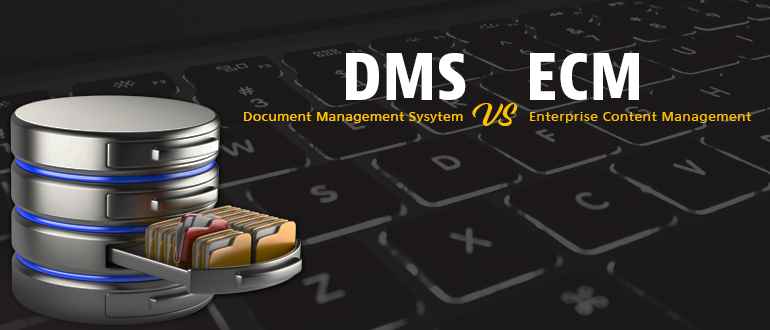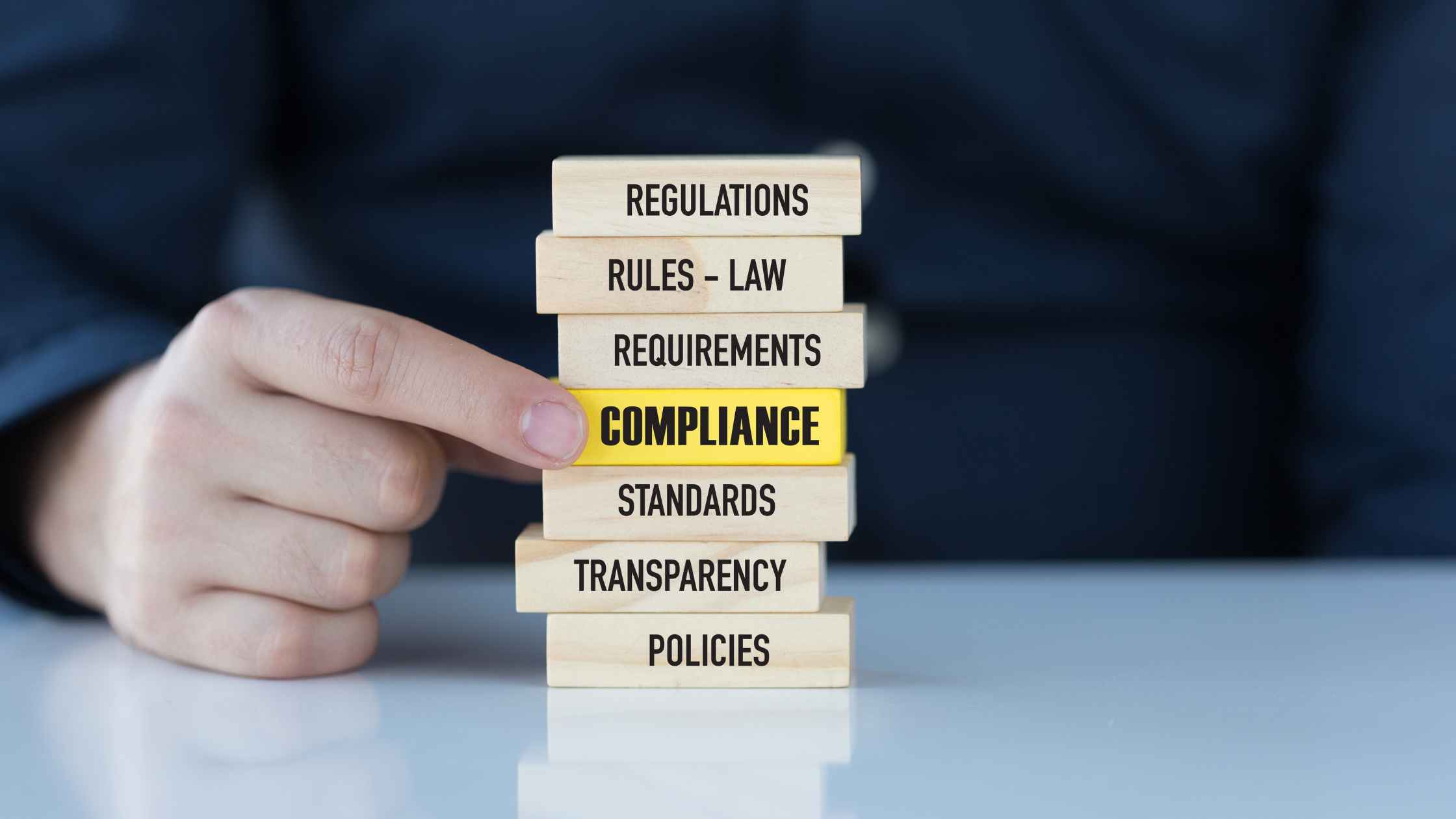
One of the questions we often hear from clients is this: what is the difference between a DMS (document management software) system and an ECM (enterprise content management) system? Both are types of software are used for document storage capabilities, and both help organizations create a smarter way of organizing and accessing information in a digital format. However, the terms DMS and ECM are not interchangeable. On the contrary, these two types of document repositories have several notable differences that organizations should consider before choosing one or the other as a means of managing unstructured digital data.
What is a Document Management Software System (DMS)?
DMS systems are basically software that stores, tracks and manages electronic documents. You might think of it as a digital filing cabinet with increased security, and typically, it’s a simpler solution for most businesses that is easier to use and requires less management. DMS is used primarily to digitize and archive files and track and manage new documents throughout their lifecycle, as they are written, revised, and updated.
DMS is the core solution to the problem of helping companies organize, access, retain and safeguard their documents. However, it may only address the document management needs of big companies.
What is an Enterprise Content Management System (ECM)?
ECM systems are more like a formalized means for storing and managing an organization’s process documentation and other content. Some even look at it as a super-sized, high-power DMS. Think of it as an intelligent being able to automatically recognize the content within documents and “know” where/whom to send it to. It manages different types of content, and can also help with email management, imaging, digital asset management, document-centric collaboration, and business process management.
Essentially, ECMs help configures high volumes of unstructured information, especially for larger organizations that can accommodate a much higher price and that need a higher level of content management.
Platform Commonalities
While document management software systems (DMS) and enterprise content management (ECM) platforms are inherently different, they also bear a number of commonalities. Both platforms provide fully centralized storage of files and information in a digital format. An ECM system is technically just a more advanced, feature-heavy DMS, with applications for more demanding or specialized functions for certain industries or organizations.
By digitizing company files and documents, both types of software can help companies go paperless, make files accessible from anywhere, provide disaster recovery and superb security, and support easy file collaboration between multiple users.
Of course, specific features vary between different document management systems and enterprise content management platforms. However, quality enterprise-ready versions of both software should include features such as:
Storage system templates,
Indexing,
Workflow,
Versioning,
Audit trails,
Mobile access,
Encryption for files at rest and in transit,
Advanced system search options.
Outside of these features, both DMS and ECM should also provide the following benefits:
Accessibility, streamlined processes, and great security features,
SaaS technology,
Shared indexing, workflow, versioning, and audit trails,
Add-on tools and modules in most packages,
Fully centralized storage of files in digital format,
Provide disaster recovery,
Cost savings,
Help companies go paperless,
Templates,
Unbound by storage geography,
Benefit the environment,
Sold by organizations with integration technology,
Facilitate green technology,
Designed to consider retention regulations,
Some freeware ECM or DMS programs won’t come with all of these features, which can be a convincing argument for a paid or subscription-based service.
DMS vs. ECM: The Differences Between the Platforms
Despite their similarities, document management software systems and enterprise content management platforms also have several significant differences.
DMS software is essentially the less advanced version of enterprise content management. DMS programs are used specifically to store, track, and manage electronic documents, with the major focus being on structured documents like Word, PowerPoint, Excel, or PDF files. Enterprises typically use document management software to digitize their filing systems and go paperless. DMS systems are usually outfitted with OCR (optical character recognition), making it easy to use the programs to create editable digital versions of your print files.
Providing a similar structure to a filing cabinet—except in digital format and with stronger security and organization principles—DMS programs are useful to organizations because they simplify the entire process of document management. With DMS, you have easy digital control of the entire life cycle of every document in your library, from the creation stage to revisions and updates, all the way to document retention and ongoing file accessibility. You can even automate certain business processes with document management systems, such as archiving or deletion of client documents after specific periods of time.
An enterprise content management system, as mentioned previously, is a more advanced form of DMS technology. An ECM system is an advanced means of storing and managing an organization’s process documentation and other content. These systems can be used to do everything DMS can (digitizing documents, organizing files into an easily searchable filing system, etc.), but are more advanced and powerful.
One of the major contrasts between DMS and ECM software is that while a DMS system is used mainly to organize “structured” Word or PDF documents, ECM can manage images, graphics, website content, emails, video and audio files, rich media assets, and more. In other words, ECM systems are a more comprehensive means of managing all of a company’s digital assets on a multimedia level.
More than just including document management software that can handle alternative media files, enterprise content management systems are also more intelligent programs than document management systems. ECM programs actually measure information in addition to storing it. They manage unstructured data by themselves, working more as an independent office manager or staff member than as simple productivity tools. ECM systems include a number of different tools and strategies that they use to automate your filing system in unique and effective ways. An enterprise content management program can analyze content and determine where it needs to be stored in your system, or whom it needs to be sent to (and when). ECM platforms also provide offline access, superior security, stricter government compliance, and greater integration and scalability features than DMS.


